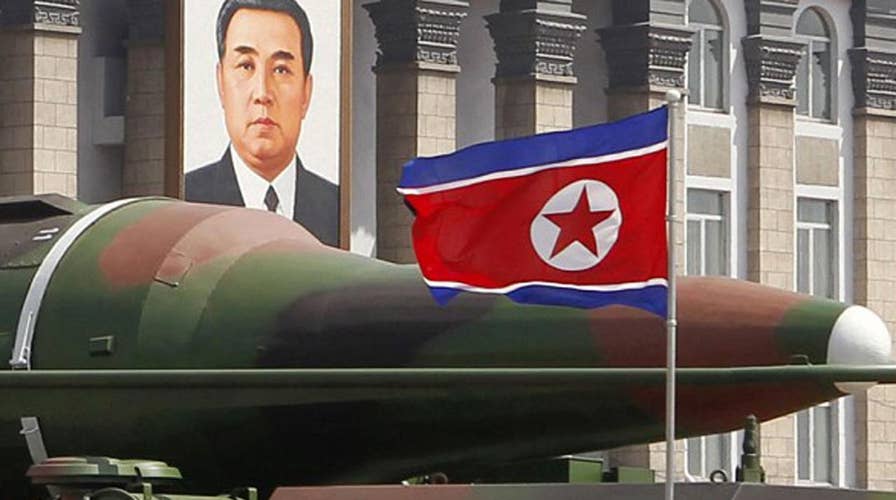North Korea claims it is 'on standby' for missile launch
Lt. Col. Tony Shaffer reacts on 'Fox & Friends'
As the threat of nuclear conflict escalates between the U.S. and North Korea, religious leaders are stepping into the firestorm in an urgent quest to calm the rhetoric between President Trump and dictator Kim Jong Un.
“The Catholic Church has been a leader against nuclear proliferation, and the Church has been able to act in different areas around the world where others can’t,” Christopher Hale, a senior fellow at Catholics in Alliance for the Common Good and leader for President Obama’s national Catholic outreach, told Fox News. He stressed that church members in both the Korean Peninsula and in the U.S. have potential to play a key part in stopping the military escalation.
Late last week, the National Council of Churches in South Korea (NCCK) issued an “emergency letter” to South Korean president Moon Jae-In, emphasizing their serious concerns.
“Military tension is at its height in the Korean peninsula and there is fear of war spreading among the people,” the NCCK wrote, offering its willingness to get actively involved in peace talks. “In order to transform the present crisis into an opportunity and open the door for dialogue, we humbly ask you to dispatch a special envoy to North Korea.”
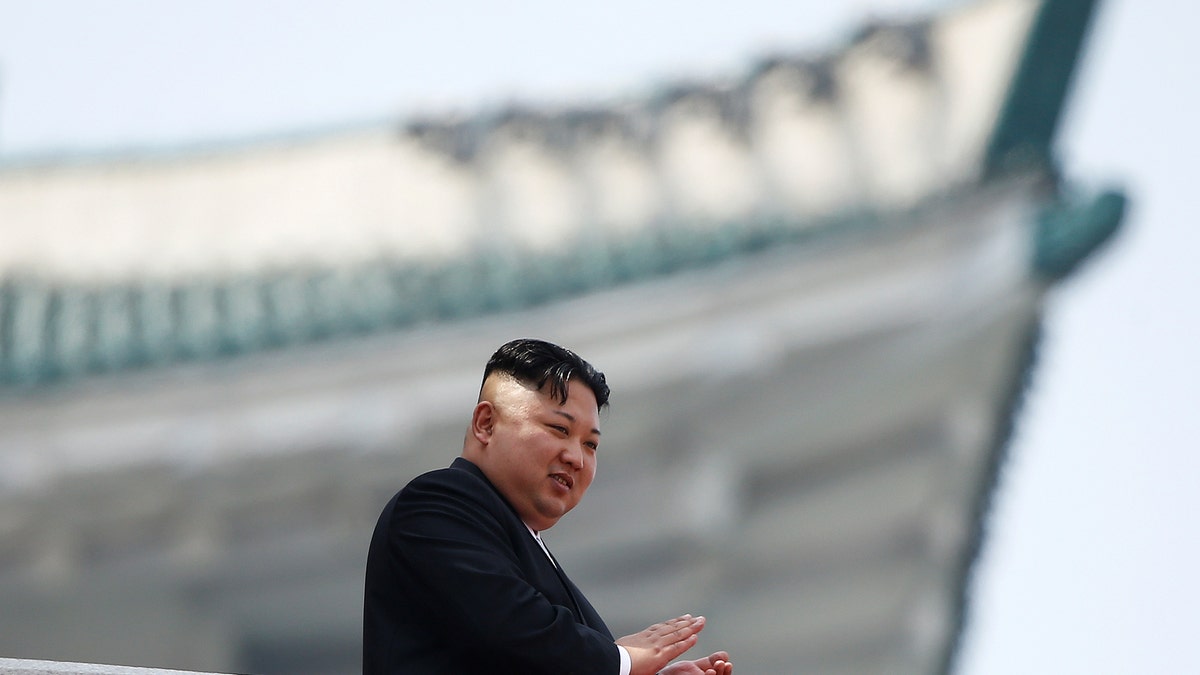
North Korean leader Kim Jong Un applauds during a military parade. (REUTERS/Damir Sagolj)
The Catholic Bishops’ Conference in South Korea has made a plea for diplomatic solutions. The chairman of the bishops’ Committee on International Justice and Peace, Bishop Oscar Cantu of Las Cruces, New Mexico, is echoing their sentiment to Washington. Cantu has penned a letter to Secretary of State Rex Tillerson acknowledging that that North Korea’s perils cannot be “underestimated and ignored,” but that the U.S should turn to the talking table.

“The high certainty of catastrophic death and destruction from any military action must prompt the United States to work with others in the international community for a diplomatic and political solution based on dialogue,” Cantu wrote.
He also emphasized to Tillerson that “nuclear deterrence” only seeks to “exacerbate tensions and produce arms races as countries acquire more weapons of mass destruction in an attempt to intimidate or threaten other nations.”
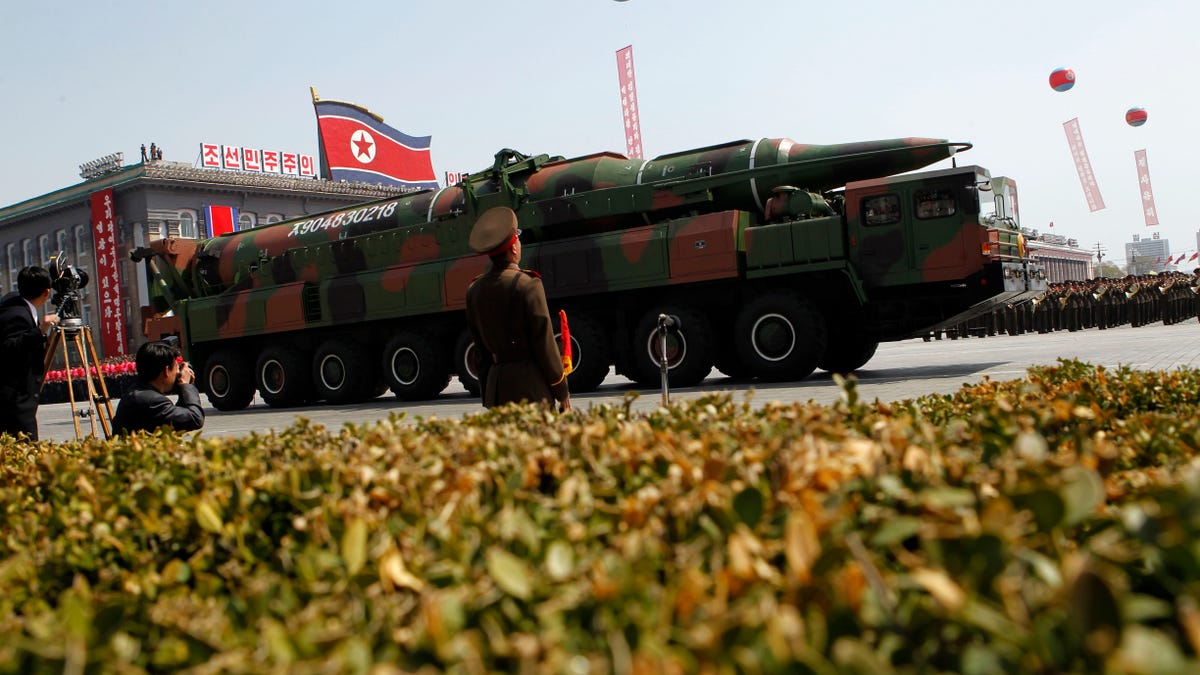
A North Korean vehicle purported to be carrying a new missile passes through a Pyongyang military parade. (AP)
Similarly, Archbishop Silvano Tomasi, previously the Holy See’s permanent observer to the United Nations in Geneva and the reigning advisor to the Vatican’s new office for Integral Human Development, has called for dialogue and inclusive negotiations to resolve the mounting catastrophe.
“The way of conflict is always the wrong way. The way forward is not that of having the latest military technology, but of having an approach of inclusion,” Tomasi said on Vatican Radio, reiterating the Holy See’s stance against the use and possession of atomic weapons.
The effort from religious figures to simmer hostilities comes as Trump and Kim continue to exchange barbs about the potential for mass-scale attacks.
Trump vowed last week that the nation would respond with “fire and fury” and is “locked and loaded” should North Korea dare come close to carrying an attack on the U.S territory of Guam as the regime has cautioned. Pentagon officials have told Fox News that the U.S military stands ready to “fight tonight.”
DEVOUTLY CATHOLIC GUAM CELEBRATES MASS AMID N. KOREA THREAT
The back-and-forth discourse between governments has seen Pyongyang offer up warnings that “even a single shell dropped on the Koreans Peninsula might lead to the outbreak of thermonuclear war” and that North Korea considers “the U.S no more than a lump” which it “can beat to a jelly at any time.”
However, some experts are doubtful that religious voices calling for a peaceful resolution to the nuclear dilemma will have any significant impact. While a significant 14 million of South Korea’s 50 million population are devout Christians, North Korea remains the most religiously oppressive nation in the world – with devotion to anyone but the dictatorship completely outlawed – although hundreds of thousands are believed to practice their faith in secret.
DEFECTORS FROM NORTH KOREA DESCRIBE CONCENTRATION CAMP, DAILY LIFE
“The Vatican has no influence with North Korea, and while I am sure the American Bishops will get a polite hearing from the Trump Administration, on this issue their call for a de-escalation of the rhetoric are likely to fall on deaf ears,” Michael Desch, director of the Notre Dame International Security Center, told Fox News.
But given the increasingly dire situation, churches are using the drama as a reminder for followers to turn to prayer.
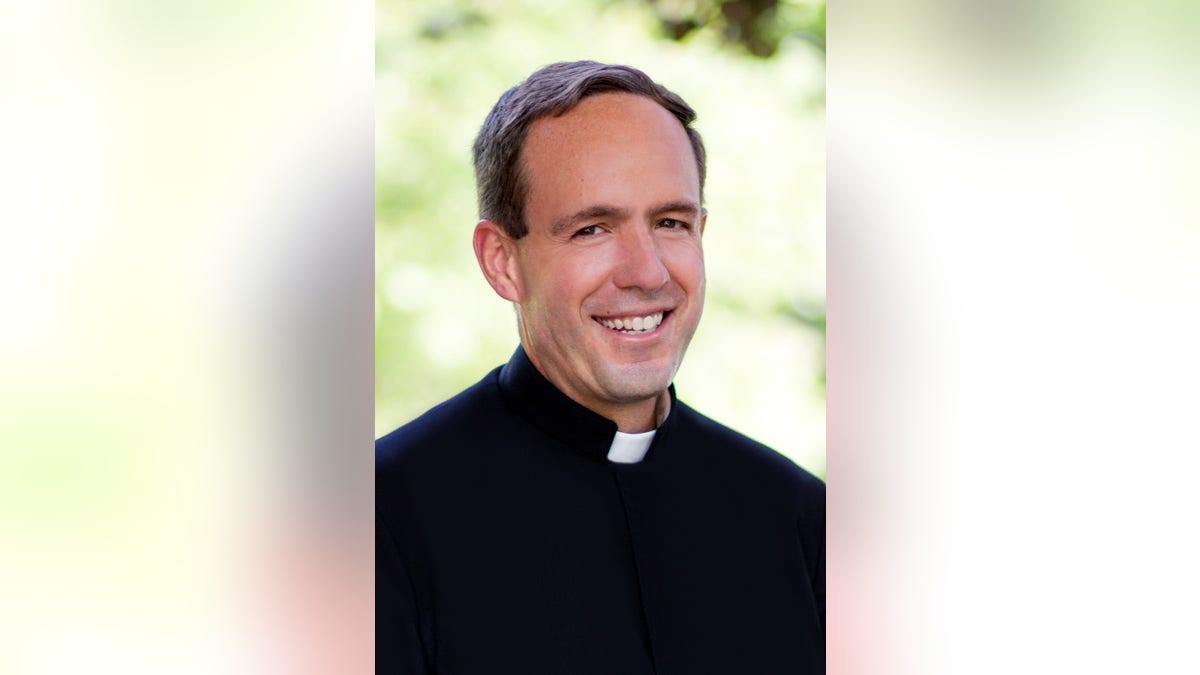
Father Michael Sliney, Catholic Priest and Lumen chaplain for Manhattan is reminding followers of the power of prayer as North Korea tensions escalate.
“As good citizens, we can remind our elected officials to pursue all possible means of diplomacy,” Father Michael Sliney, Catholic Priest and Lumen chaplain for Manhattan told Fox News. “More importantly, we should not doubt the power for prayer.”
On Sunday, the World Council of Churches and the World Communion of Reformed Churches called on all members to observe the day as a “Sunday of Prayer for the Peaceful Reunification of the Korean Peninsula” and stand in solidarity with the National Council of Churches in Korea (NCCK) and the Korean Christian Federation (KCF).
The global prayer event, which this year had a theme based on Romans 14:10 “Let us then pursue what makes for peace and for mutual upbuilding,” came just two days before the annual Liberation Day in both North and South Korea. Traditionally celebrated on August 15th, the occasion commemorates the date in 1945 when Korea was granted independence from the Japanese, and was subsequently divided into two.
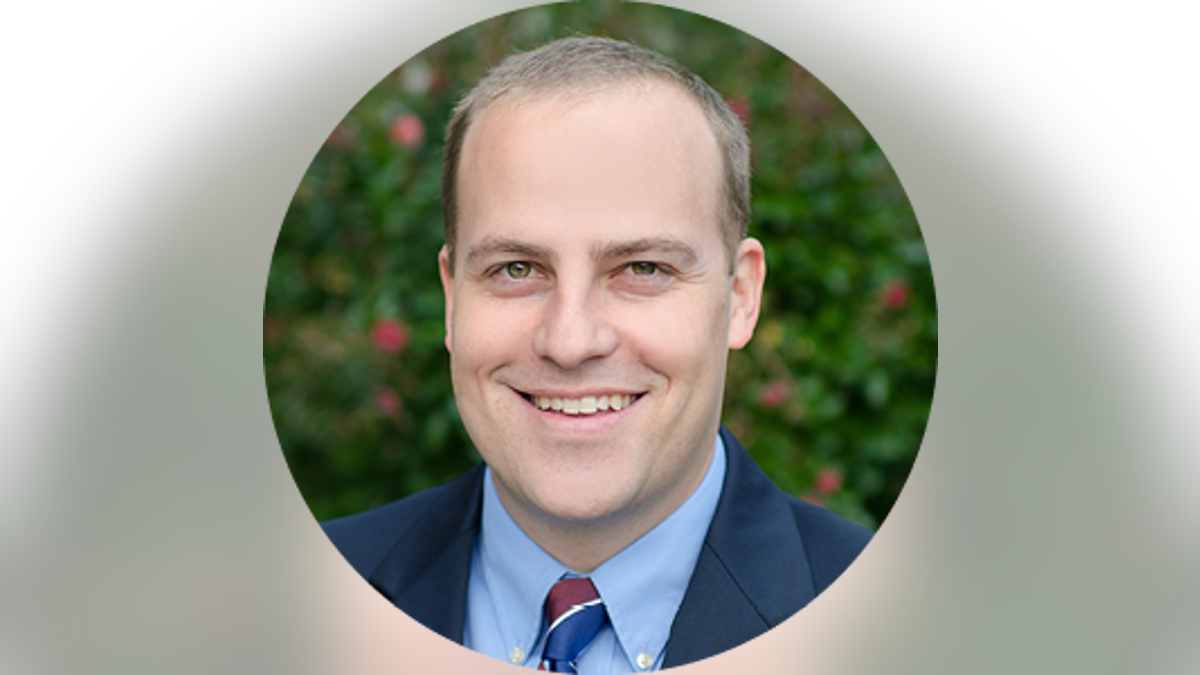
Dr. Phillip Bethancourt, Executive VP for the Ethics & Religious Liberty Commission.
“Global unrest should drive Christians to prayer,” noted Dr. Phillip Bethancourt, Executive VP for the Ethics & Religious Liberty Commission. “As the crisis with North Korea escalates, believers should pray that our government leaders would have wisdom, that our persecuted brothers and sisters in North Korea would have protection, and that our own hearts would have faith in the power of God in the midst of uncertainty.”
Meanwhile, Douglas Carver, the former U.S. Army chief of chaplains, also prompted followers not only to pray for a “diplomatic solution” first and foremost, but also for “the commander-in-chief and his cabinet members, our congressional leaders and members of the armed services who may be required to make grave and costly decisions in the near future.”
He added, “It appears that the time for a diplomatic solution is running out.”
